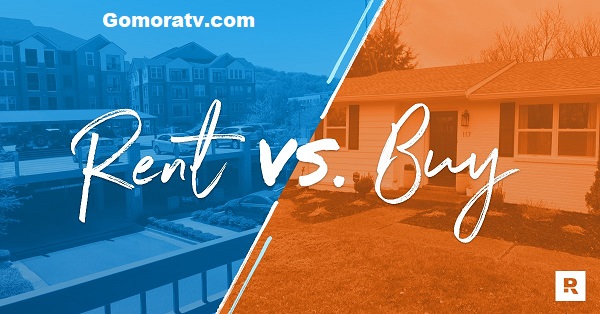Is Renting Now in the US Better Than Buying a Property?
Is Renting Now in the US Better Than Buying a Property?, Several circumstances unique to your circumstances will determine whether it makes more sense to buy or rent a property in the US at this time. Here is a summary to assist you in balancing the benefits and drawbacks:

Factors to Consider for Buying:
Market Conditions: In 2024, house prices and mortgage rates have recently experienced a significant uptick. This could lead to certain places where purchasing is more costly than renting.
Long-Term Plans: If you plan to stay in one place for an extended period, say five to seven years, then buying a home can be a prudent decision. You will build up equity over time and may benefit from further expansion.
Financial Stability: Accessibility is essential. Take into account your initial down payment, closing costs, recurring mortgage payments, real estate taxes, and upkeep charges. Make sure you have saved money for unforeseen expenses.
Lifestyle Needs: Homeownership comes with responsibilities like repairs and maintenance. Assess if you’re prepared for that commitment.
Factors to Consider for Renting:
Flexibility: If you have work that requires travel or are unsure of your long-term plans for where to live, renting gives you more freedom.
Also Read: Online Real Estate Companies in the US
Lower Upfront Costs: When compared to buying, renting often requires a smaller down payment, which lowers the entry barrier for potential tenants.
Maintenance Responsibilities: Major maintenance and repairs are usually taken care of by landlords, relieving you of those responsibilities.
Current Market Trends (as of April 2024):
Rising Mortgage Rates: The Federal Reserve’s interest rate hikes have resulted in higher mortgage rates, which might make buying less affordable than in prior years.
High Home Prices: Even if property prices are growing more slowly, they are still high in many places, which affects affordability.
Rent Prices are Rising Too: Rental markets are also seeing increases, but generally not at the same pace as home prices.
Here are some resources that can help you decide:
Mortgage affordability calculators: Estimate your monthly mortgage payment and compare it to your current rent.
Market research tools: Research home prices, trends, and rental costs in your target area.
Financial advisors: Consult a financial advisor to assess your financial situation and determine the best option for you.
Advantages of Buying a Property
Having a house opens up a wealth of financial benefits. Developing equity over time is one of the biggest benefits. You own part of the property and have a stake in its value with every mortgage payment. You stand to gain from an increase in local house prices, which could eventually result in the accumulation of substantial wealth. To further sweeten the pot, several nations provide homeowners with tax incentives that let them deduct property taxes and mortgage interest.
Owning a home promotes a strong sense of stability and security that goes beyond money. Peace of mind comes from knowing you have a permanent residence in which you continuously create equity. Compared to renting, you’ll have more control over your surroundings. The days of stressing over prospective increases in rent or non-renewals of leases are long gone. It’s your blank canvas to design the inside as you see fit, whether that means painting the walls a new color or remodeling the kitchen.
Advantages of renting than Buying a Property
Renting a property can be a wise decision in many situations, offering distinct advantages compared to buying. Here’s a closer look at some key benefits:
Flexibility and Mobility: Renters gain from having more freedom, particularly if their lifestyle or employment needs frequent travel. You are not forced to reside in one location by a mortgage. This might be ideal for students, young professionals, or those whose futures are unsure.
Lower Upfront Costs and Predictable Monthly Payments: Compared to buying, renting requires a significantly less upfront financial commitment. Typically, there is no need for a down payment, and closing costs are negligible or nonexistent. Rent provides a steady monthly expense, which makes budgeting easier. In general, the landlord is responsible for paying property taxes, homeowner’s insurance, and unanticipated maintenance costs that could put homeowners in a tough situation.
Less Maintenance and Responsibility: You are typically absolved of the responsibility for upkeep and repairs as a renter. Landlords are typically required to handle major repairs and upkeep, which frees up your time and money. If you don’t enjoy do-it-yourself chores or don’t have the time or ability to perform maintenance duties, this might be a big benefit.
Note: The choice between buying and renting ultimately comes down to your priorities and circumstances. In your current scenario, renting can be a better option if you seek flexibility, predictable costs, and a smaller upfront financial investment.